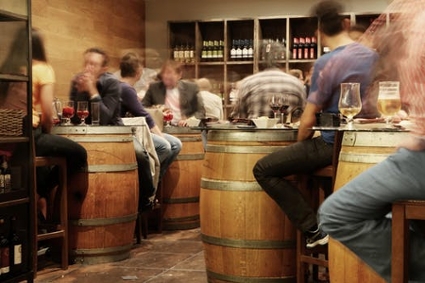I have a friend who graduated recently whom I’m worried about. When he was still here on campus, he drank a lot. He’s left our campus behind, but I don’t think he’s ditched any of his drinking habits. The thing is, he thinks he has. He says it’s different now, because he’s not binge-drinking cheap beers at parties or happy hours. He says he can afford the good stuff now (and he can; he has a good job), and that he only drinks craft beers, and less of them. I’m not convinced, though. He still seems to drink plenty, and even if he’s drinking less, some of these beers have much more alcohol in them than the light beers he used to drink. What can I do to help my friend?
Our nation has a problem with drinking. One in 12 adults in the United States is an alcoholic, and that number includes people off all ages and all walks of life. Some may be drinking cheap beers in party settings, sure, but others are like your friend, and drink excessively while living a professional lifestyle and choosing higher-end beverages.
Your friend’s college lifestyle is all too typical. College officials know that drinking is disruptive to the college learning environment, and you’d be hard-pressed to find any university in the nation that doesn’t make alcohol education and enforcement a priority on some level. But American college culture is tied up in alcohol, and 72% of undergraduates report drinking too much on a regular basis. Many of those students think that drinking is just what college kids do; no doubt they, like your friend, believe their habits will change when they graduate.
And maybe their habits will, but as your friend proves, excessive alcohol consumption is a bad habit that can adapt. Craft beer culture has transformed the way many of us drink, but your friend is not the first person to fall victim to the seductive idea that drinking too many high-end beers is somehow less of a problem than drinking a lot of cheap ones. In fact, the craft beers can sometimes be worse.
The curators at Columbia Distributing, an alcoholic beverage distributor in Kent, Washington, told us that the craft beer revolution has put an emphasis on brewing different types of beer and has largely passed over light beer as a genre; and, as you have realized, this can translate to very high alcohol contents. Having made a porter and a stout already, a brewery may move on to an imperial porter and an imperial stout (“imperial” beers are made to taste bold and generally use a lot of hops–meaning they end up with higher alcohol contents). And perhaps no type of beer has benefited more from the craft beer revolution than the India pale ale, a beer defined by its higher alcohol content (the extra alcohol kept the beer preserved on its way from Britain to India). Some bars note alcohol contents on their drinks menus, but even then, an uncareful drinker can find him or herself consuming beers with alcohol contents north of 10%–a far cry from the 4 to 5% alcohol content of a typical American light beer. And there are a lot of these high-alcohol beers: production of beers of over 6.5% alcohol increased by 319% between 2011 and 2014.
In short, your friend’s protestations don’t add up, and if you’re observing bad drinking habits, it’s likely he has a problem. Unfortunately, there’s only so much you can do until your friend is willing to take the initiative. If you have many mutual friends and know his family well, an intervention is a possibility, assuming the situation merits it. Other than that, you can remind him of your concern and make yourself available if he needs someone to talk to–providing a sympathetic ear may be one way to help him discover the problem (and resolve to seek a solution) himself. It may also be a good idea to discuss this issue with a therapist or a counselor (your school has resources that can help you). Your friend is lucky to have such a caring person in his life. You’re wise to not ignore this problem, so keep it in mind, seek the help you can on your own, and hope that your friend comes to see the situation as clearly as you have.
“It seemed that I performed better sober than drunk. Who knew?” — Craig Ferguson


